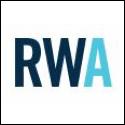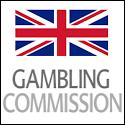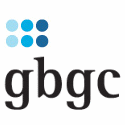Licensing and Taxation of Gambling Activities in Denmark
All questions
The licensing process
i Application and renewal
The Danish Gambling Authority has different application forms for different types of gambling licences.
Licences may as a starting point be granted to both individuals and companies. However, there are a few exceptions. Licences to provide and organise local pool betting on cycle racing on tracks, dog racing on racecourses and pigeon racing can only be granted to companies that are organisers of such races, and that are members of the relevant sport’s central organisation or association. Further, a licence for local pool betting on horse racing can only be issued to associations that have held such a licence for a number of years prior to the partial liberalisation of the Danish gambling legislation in 2012.
When it comes to individuals, a gambling licence can only be issued to persons:
- who have attained the age of 21 and who are not under guardianship;
- who have not filed for bankruptcy or similar; and
- who have not been convicted of a criminal offence that gives reason to believe that there is a clear risk of abuse inherent in their access to working in the gambling industry.
Further, such person may not have any unpaid outstanding debt due to the Danish public sector.
If the applicant is a company, it is required that the company has not filed for bankruptcy or similar, has not been convicted of a criminal offence that gives reason to believe that there is a clear risk of abuse inherent in its access to working in the gambling industry, or has unpaid outstanding debt to the public sector. Further, it is a requirement that the company’s directors and members of the board all fulfil the requirements that apply to individuals applying for a licence, as above.
If the applicant, whether an individual or a company, is not from the EU or EEA, a gambling licence can only be granted if the applicant has appointed a representative within the EU or EEA that has been approved by the Danish Gambling Authority.
A gambling licence can only be granted to applicants that are assumed to be able to carry out gambling activities in a sound financial and professional manner.
When the Danish Gambling Authority assesses whether to grant a gambling licence to establish and operate a land-based casino or to install gaming machines offering cash winnings in gaming machine arcades, it may take the maintenance of public order and the size and location of the gambling establishment into consideration.
As part of its application, an applicant shall enclose a series of specified appendices the purpose of which is to demonstrate that the applicant fulfils the criteria mentioned above. To the extent that the Danish Gambling Authority assesses that the appendices submitted do not sufficiently document that the applicant fulfils the criteria for obtaining a gambling licence, it may request further documentation.
The applicant must have a set-off free account at a financial institution, which is kept separate from its other funds. The funds in the account may only be used for payouts to players and they must be protected should the licence holder become insolvent.
Further, it is required that the applicant’s gambling systems, business procedures and business systems are certified by an accredited test agency before the gambling system is used to offer games to players. The requirements for certification are described in a number of documents issued by the Danish Gambling Authority.
Usually, the application process takes between three to six months. This will however depend on the case load of the Danish Gambling Authority at the time that the application is submitted, as well as the number of follow-up questions that the Authority may have regarding the application. Further, it will depend on the applicant’s response time to any follow-up questions.
The application fee varies depending on the type of gambling licence applied for. For online casino licences and betting licences, the application fee is currently 295,800 Danish kroner. If the applicant applies for both an online casino licence and a betting licence, the collective application fee is 414,100 Danish kroner.
In addition, a gambling operator holding an online casino licence or a betting licence shall pay an annual fee to maintain the licence. The amount of the annual fee depends on the gambling operator’s GGR originating from Danish players. The annual fee is determined on the basis of a table with eight intervals. Currently, the lowest annual fee is 59,200 Danish kroner, which is for GGRs below 5 million Danish kroner, while the highest annual fee is 5,323,500 Danish kroner, which is for GGRs above 500 million Danish kroner.
The term of a gambling licence also depends on the type of licence. For online casino licences and betting licences, the term is generally five years. Upon expiry of a gambling licence, the gambling operator may apply for a renewal. A renewal fee, which is smaller than the application fee, will need to be paid together with the submission of the renewal application. In principle, the renewal process is similar to the application process. Since the Danish Gambling Authority has assessed the gambling operator and its gambling system before, the renewal process is, however, in practice often easier and faster.
ii Sanctions for non-compliance
If a gambling operator intentionally or by gross negligence provides or organises gambling in Denmark without an applicable Danish gambling licence, the gambling operator will be liable to a fine or imprisonment for up to six months. In aggravating circumstances, the penalty may be increased to imprisonment for one year.
Anyone who intentionally or through gross negligence promotes participation in gambling activities (e.g., affiliate marketing) that is offered without a Danish gambling licence shall be liable to a fine.
In addition, a fine, unless a higher penalty is incurred in pursuance of other legislation, may be imposed on:
- anyone who provides premises for illegal gambling activities;
- licensed gambling operators not fulfilling the conditions set out in their gambling licences;
- anyone who advertises for unlicensed gambling operators;
- anyone who for business purposes promotes participation in gambling activities for which a Danish licence is granted, but where such promotion takes place without the approval of the licence holder; or
- anyone who makes a living by gambling activities for which a licence has not been granted.
Licensed gambling operators may risk a fine if they do not comply with the requirements for offering gambling in Denmark set out in the Act on Gambling, any underlying executive orders or the terms of their licences.
Further, the Danish Gambling Authority has the possibility to revoke a gambling licence if a licensed gambling operator is guilty of gross or repeated violation of the gambling
legislation or the terms of its gambling licence, or in certain specified other cases. To our knowledge, this possibility has, however, not been used to date.
The Danish Gambling Authority’s enforcement of the legislation in regard to foreign unlicensed gambling operators marketing their games towards Denmark has so far primarily taken place via warning letters to the involved operators. To the extent that an unlicensed gambling operator following receipt of such letter amends its offerings so as not to be targeting Denmark, the Danish Gambling Authority will in general not do anything further. If an unlicensed gambling operator, after receipt of a warning letter, does not amend its marketing of its games, the Danish Gambling Authority may, however, take further action.
In this respect, the Danish Gambling Authority has relatively often obtained court orders against Danish internet service providers obligating them to make DNS blockings of websites of unlicensed online gambling operators that have not voluntarily agreed to cease marketing their games towards Denmark.
The Danish Gambling Authority also has the possibility to obtain court orders against financial institutions forcing them to block payments to and from unlicensed gambling operators. To our knowledge, this possibility has so far not been used.
Taxation
Players are not subject to taxation of their winnings from games provided by gambling operators holding Danish gambling licences.
Instead, licensed gambling operators are obligated to pay gambling duty, which is in general calculated as a percentage of gambling operators’ GGR originating from Danish players or, with respect to games, where gambling operators take commission (rake) on the basis hereof. GGR is defined as stakes received from Danish players minus winnings paid out to Danish players.
The percentage to be paid in gambling duty differs depending on type of gambling licence. For gambling operators holding a betting licence or online casino licence, the rate is
currently 28 per cent of their GGR, whereas the rate for land based casinos is 45 per cent of their GGR, less the value of the tokens in the tronc, and an additional charge of 30 per cent for GGR (less the value of the tokens in the tronc) that exceeds 4,325,500 Danish kroner (the level in 2022).
For comparison, the corporate tax rate in Denmark is 22 per cent. When companies are calculating their corporate tax, they are. however. able to deduct a number of costs. This is not possible with respect to gambling duty, as it is solely calculated based on GGR, under which only winnings paid out to Danish players can be subtracted.
By: Jesper Madsen
SOURCES: Horten Law Firm – Lexology.
Tags: Denmark, Betting and gambling activities, Licensing and Taxation

























